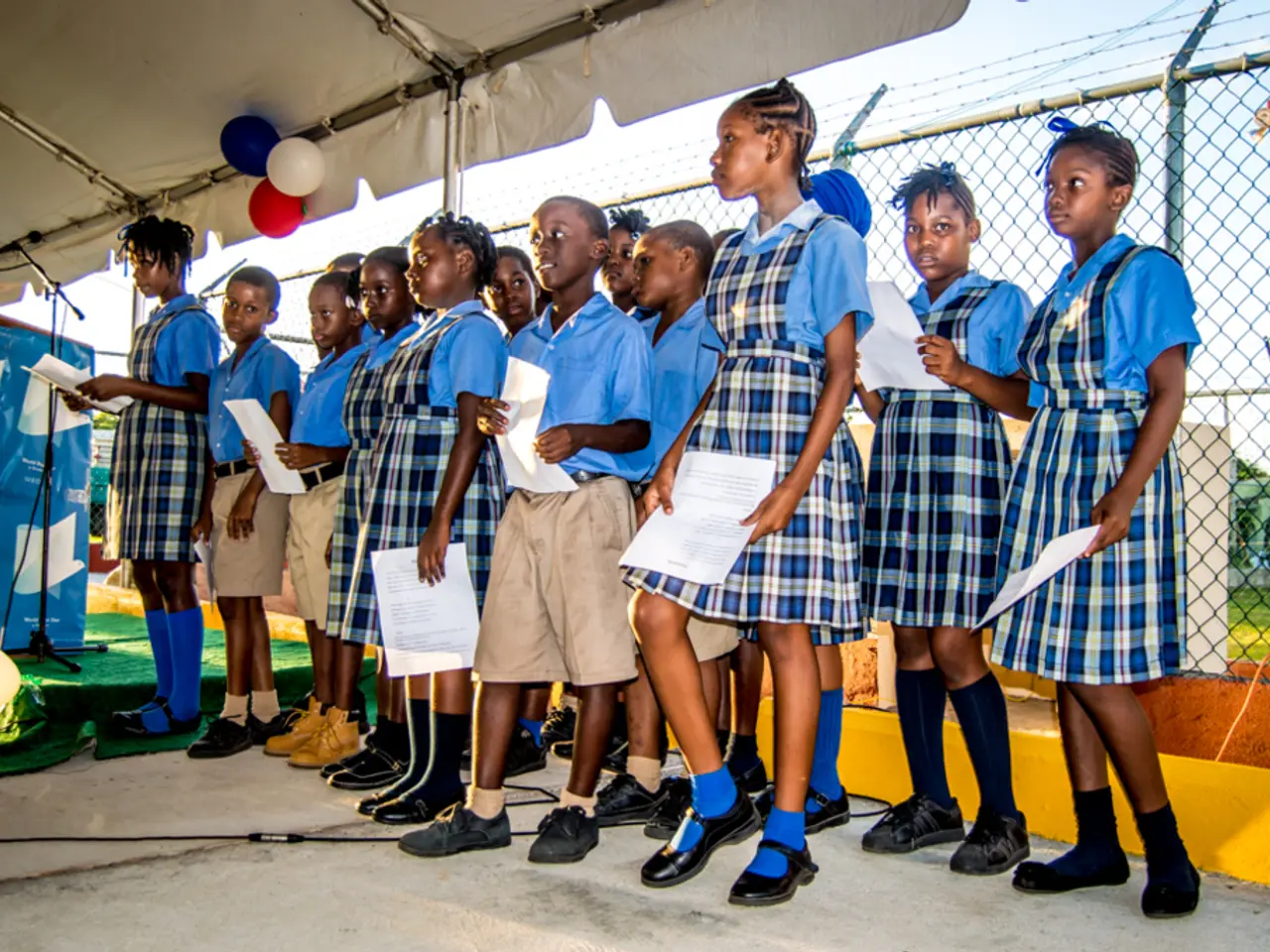Children Gaining Control - Exploring Boundaries for Youth Freedom
In a proactive move to safeguard the wellbeing of its students, Oßweil Primary School in Ludwigsburg, Germany, has embarked on a project aimed at educating fourth-graders about sexualized violence. The initiative, which is part of a larger effort involving several schools in the area, is designed to create safe spaces for children to discuss their feelings and seek support.
Ayke-Vanessa Böhmer, head of the youth department in the municipal education and family affairs department, emphasized the urgency of addressing this issue, stating that sexualized violence is often an expression of an abuse of power. She highlighted that one to two children in every German school class have already been or are currently victims of such violence.
During her visit to Oßweil Primary School, Böhmer spoke to students about topics such as "My Body," "Setting Boundaries," and "Knowing Helpful Places." She provided practical tips, such as parents accompanying children to the doctor's office and informing them about when it's helpful to turn to adults for certain problems.
The project also focuses on teaching children about places where they do not want to be touched and emphasizes that it's okay for them to say "no," even if they like someone very much. It's a crucial step towards empowering children, as all measures that strengthen their self-determination regarding their bodies contribute to their ability to protect themselves in situations of overreach.
The strategies employed in this project reflect widely accepted best practices in preventing and addressing sexualized violence in primary schools. These include education and awareness, creating a safe and supportive environment, parental and community involvement, empowerment and skill building, and monitoring and evaluation.
Education and awareness involves age-appropriate teaching on body autonomy, boundaries, and respect. Interactive workshops and storytelling are used to help children recognize inappropriate behavior and understand consent. Teachers and school staff are also trained to identify signs of sexualized violence and respond effectively.
Creating a safe and supportive environment involves establishing clear policies and codes of conduct against sexualized violence and bullying. Confidential reporting mechanisms are created for students to safely disclose experiences or concerns. The school culture is promoted to be one of respect, inclusion, and empathy.
Parental and community involvement is achieved through informational sessions for parents and guardians to raise awareness and create consistent messaging outside school. Collaboration with local organizations and experts, such as child protection services and counseling centers, is also a key component.
Empowerment and skill building encourage children to develop self-confidence and assertiveness skills. Coping strategies and seeking help when needed are taught.
Monitoring and evaluation involve regularly assessing the effectiveness of interventions and adjusting programs based on feedback from students, staff, and parents.
While specific details about the Oßweil Primary School project might be limited, these strategies represent a practical example of how primary schools can address the issue of sexualized violence. By fostering a culture of open discussion and empowerment, schools can help protect their students and equip them with the tools they need to navigate their lives safely and confidently.
- The proactive move by Oßweil Primary School includes education on sexual-health topics such as 'My Body,' 'Setting Boundaries,' and 'Knowing Helpful Places,' which falls under the category of education-and-self-development and mental-health.
- Ayke-Vanessa Böhmer, during her visit, stressed on the importance of personal-growth skills, such as parents accompanying children to the doctor's office and teaching them when it's helpful to turn to adults for certain problems, in the context of health-and-wellness and sexual-health.
- The project at Oßweil Primary School aims to empower children, addressing issues like body autonomy and the ability to say 'no,' contributing to the broader discourse of self-determination and personal-growth in the realm of science and mental-health.




